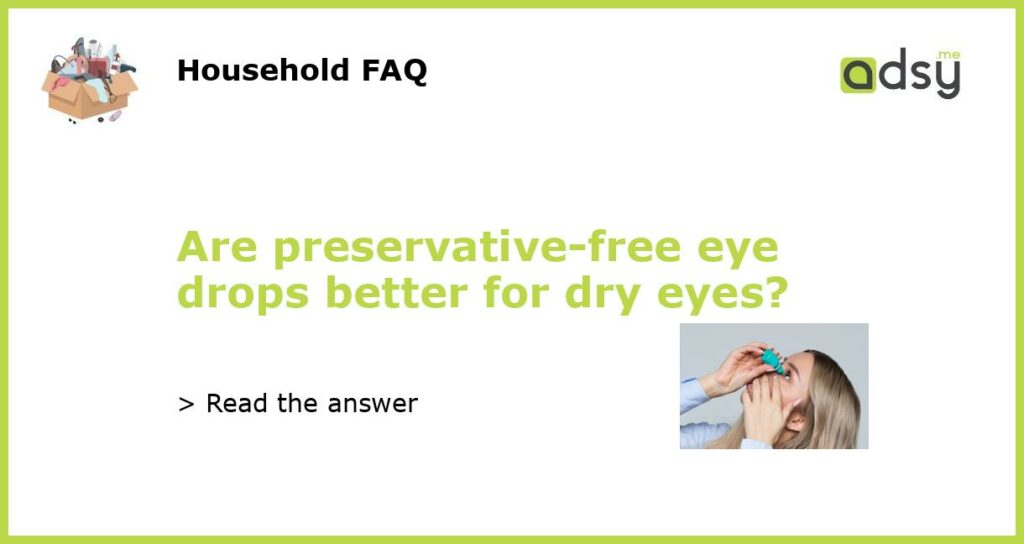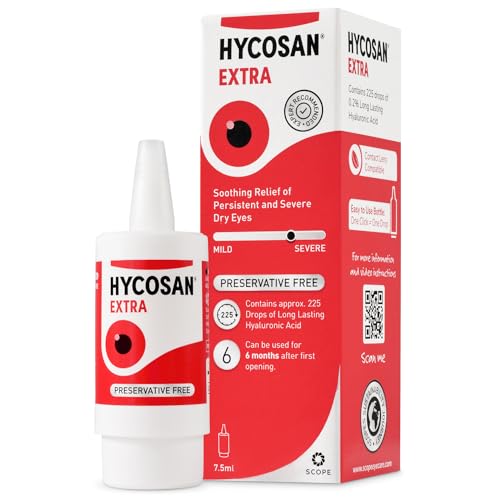Dry eyes can cause a lot of discomfort and irritation to people, and finding relief is crucial. One of the most common treatments for dry eyes is the use of eye drops. However, with so many options available, it can be challenging to determine the most effective type of eye drop. One question that often arises is whether preservative-free eye drops are better for dry eyes. In this article, we will explore this question and attempt to provide an answer.
Preservative-free vs. preserved eye drops
Eye drops can be categorized as either preserved or preservative-free. Preservative-free eye drops are designed for people who are sensitive to preservatives used in many eye drops to prolong their shelf life. On the other hand, preserved eye drops contain chemicals to prolong their shelf life but can cause irritation to people with sensitive eyes. Preservatives are usually added to multi-dose eye drops to prevent bacterial growth once the bottle is opened. The most common preservative used in eye drops is benzalkonium chloride (BAK), which can cause dry eyes and make the condition worse.
Preservative-free eye drops for dry eyes
Preservative-free eye drops are often recommended for people with dry eyes because they do not contain preservatives that can cause irritation and worsen the condition. The lack of preservatives in the drops also makes them less harsh on the eyes, making them ideal for people who use them frequently. Additionally, because preservative-free eye drops are packaged in single-use vials, there is less risk of contamination, making them safe to use for people with sensitive eyes or those who have had eye surgery.
Effectiveness of preservative-free eye drops
Preservative-free eye drops can be just as effective as preserved eye drops in treating dry eyes. In fact, several studies have shown that preservative-free eye drops can provide better relief for dry eyes than their preserved counterparts. One such study, published in the British Journal of Ophthalmology, found that patients who used preservative-free eye drops experienced improved symptoms over time compared to those who used preserved eye drops.
If you are experiencing dry eyes, it is best to consult with your eye doctor to determine the most appropriate treatment. However, for those who are sensitive to preservatives or use eye drops frequently, preservative-free eye drops can be a better option. They are less harsh on the eyes, are less likely to cause irritation, and can be just as effective in treating dry eyes as preserved eye drops.






